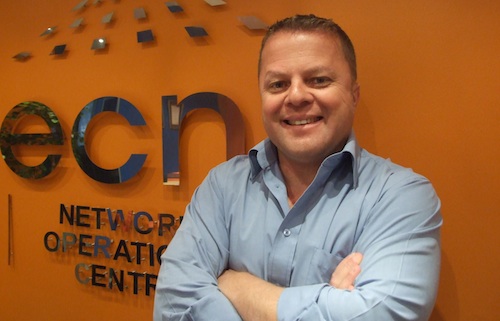
John Holdsworth is known for giving SA’s mobile operators a hard time. As former CEO of ECN Telecommunications (now Nashua ECN), he was the biggest proponent of and lobbyist for the lowering of the wholesale fees the operators charge each other to carry calls between their networks.
But now Holdsworth has come to the incumbents’ defence — with a big qualification — arguing in a submission to the Independent Communications Authority of SA (Icasa) that Vodacom, MTN, Cell C and Telkom’s 8ta are the best placed to build next-generation mobile networks using spectrum in the 800MHz and 2,6GHz bands.
The incumbent players have the “financial capability, technical know-how and experience required to roll out the 800MHz and 2,6GHz spectrum on a national basis in a relatively short space of time,” Holdsworth says in a written submission to Icasa and submitted by his new venture, AppChat, a mobile broadband voice specialist.
Holdsworth says Vodacom is building 600 third-generation (3G) base stations each quarter and reckons the operator, along with MTN and Cell C, could “quite comfortably” roll out 4G services to all of their base stations within three or four years.
In the submission, Holdsworth says Icasa’s plan to make only one package or block of spectrum available for mobile operators that already have cellular bands, means Cell C, MTN, Vodacom and 8ta/Telkom would have to split their operations into separate wholesale and retail entities — making it unlikely that they’ll bid for access to the linked 800MHz and 2,6GHz package of spectrum.
He believes this scenario is “unworkable and impractical” and that there is not yet a sufficient case for a move to a structurally separate business model without exploring alternative approaches.
Instead, the authority should attempt to impose a model where operators with significant market power are required to provide access to downstream operators on a wholesale, open-access basis. This should apply to both future and legacy products and services, with “functional separation” of wholesale services to provide transparency.
Holdsworth says the primary concern is that excluding the incumbent mobile operators from bidding will “severely undermine the roll-out of 800MHz and 2,6GHz spectrum and the availability of 4G services” at the retail level.
“We believe the allocation of the … spectrum, together with the authority’s recommended licensing philosophy, has the ability to transform the mobile telecoms landscape in SA,” Holdsworth says in the submission. “However, we are concerned that the authority’s spectrum assignment plan and licensing framework is too radical and could lead to negative outcomes and unintended consequences, including, but not limited to, lengthy court processes, lack of investment and slow roll-out of services.”
Holdsworth says he understands the reasons Icasa has recommended the course of action it has, especially in light of the “track record and behaviour on competition matters” of Vodacom and MTN. However, he says consumers’ long-term interests will be “better served by implementing solutions that harness the strength and capabilities of all role players, including Cell C, MTN, Vodacom and Telkom”. — Duncan McLeod, TechCentral
- Subscribe to our free daily newsletter
- Follow us on Twitter or on Google+ or on Facebook
- Visit our sister website, SportsCentral (still in beta)




